Neural Networks algorithms
Cell body -> Nevron -> Axon -> Synapses.
Perceptron
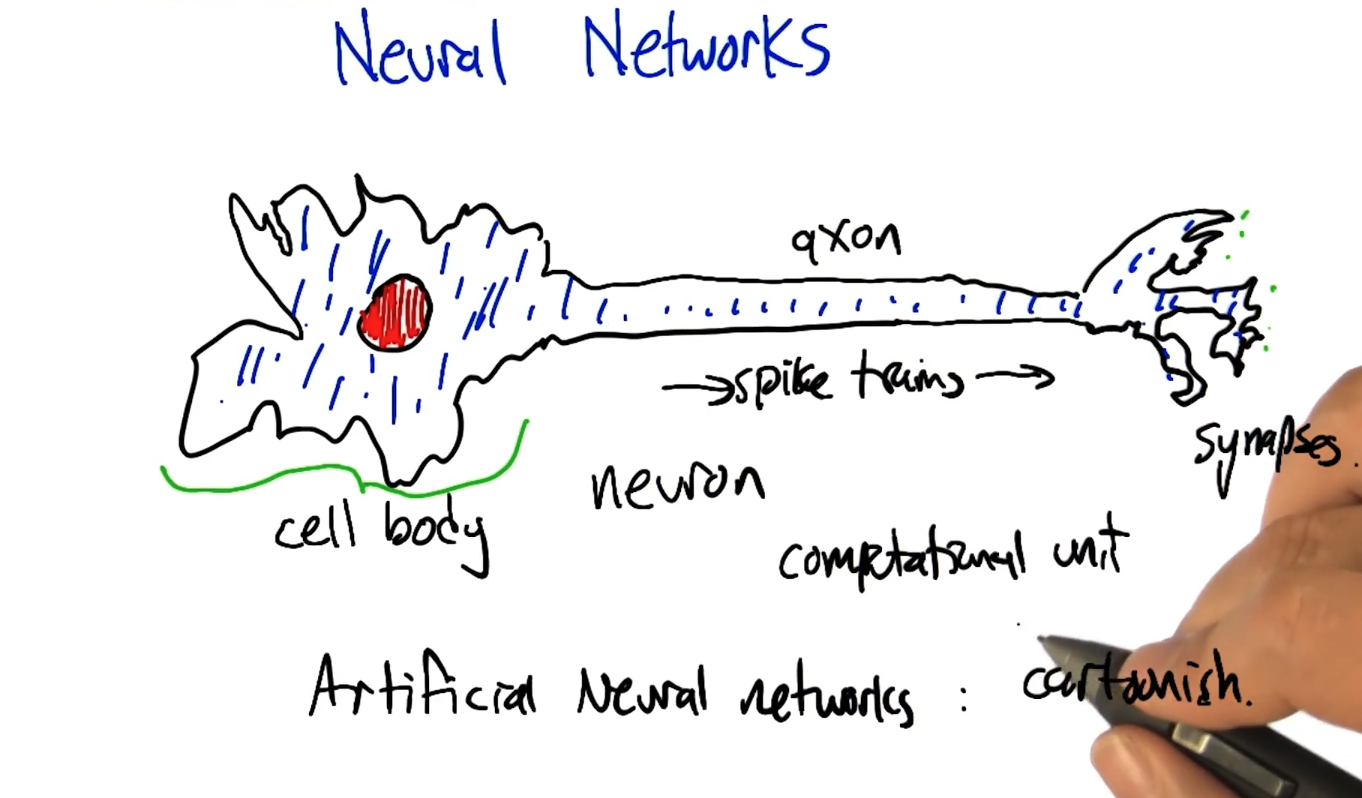
Artificial Neural Networks
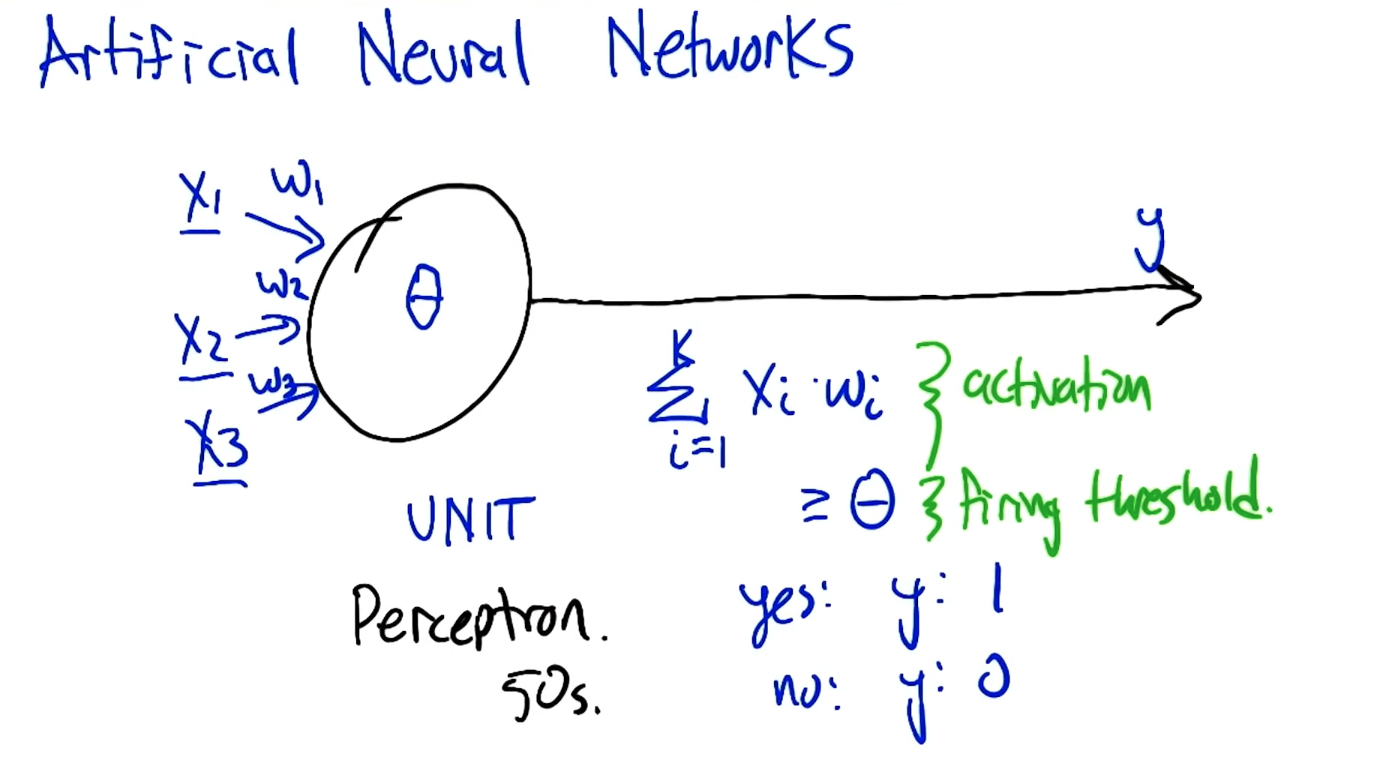

We need to pay attention to
- Activation function
- firing threshold
How powerful is perceptron unit?
One activation function computes the half plane.
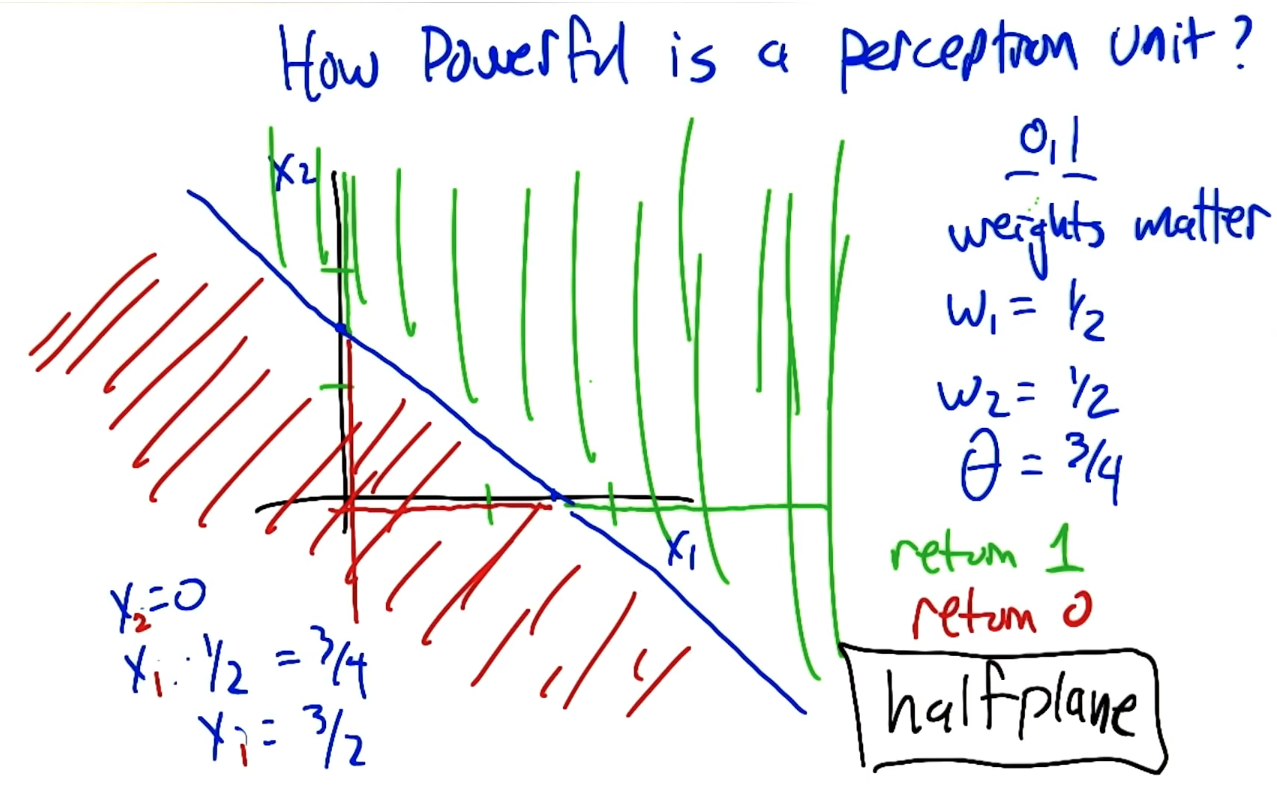
What's the nice and short computing in the following?
Boolean: AND
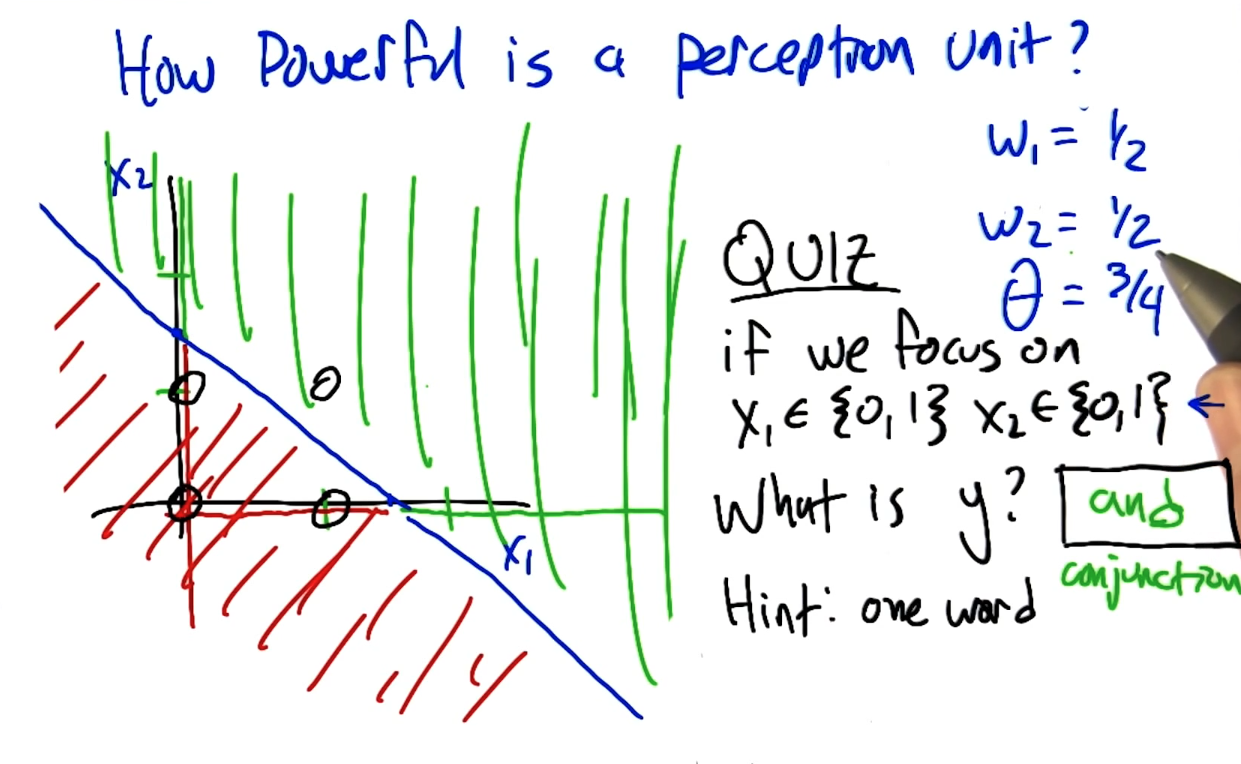
Boolean: OR
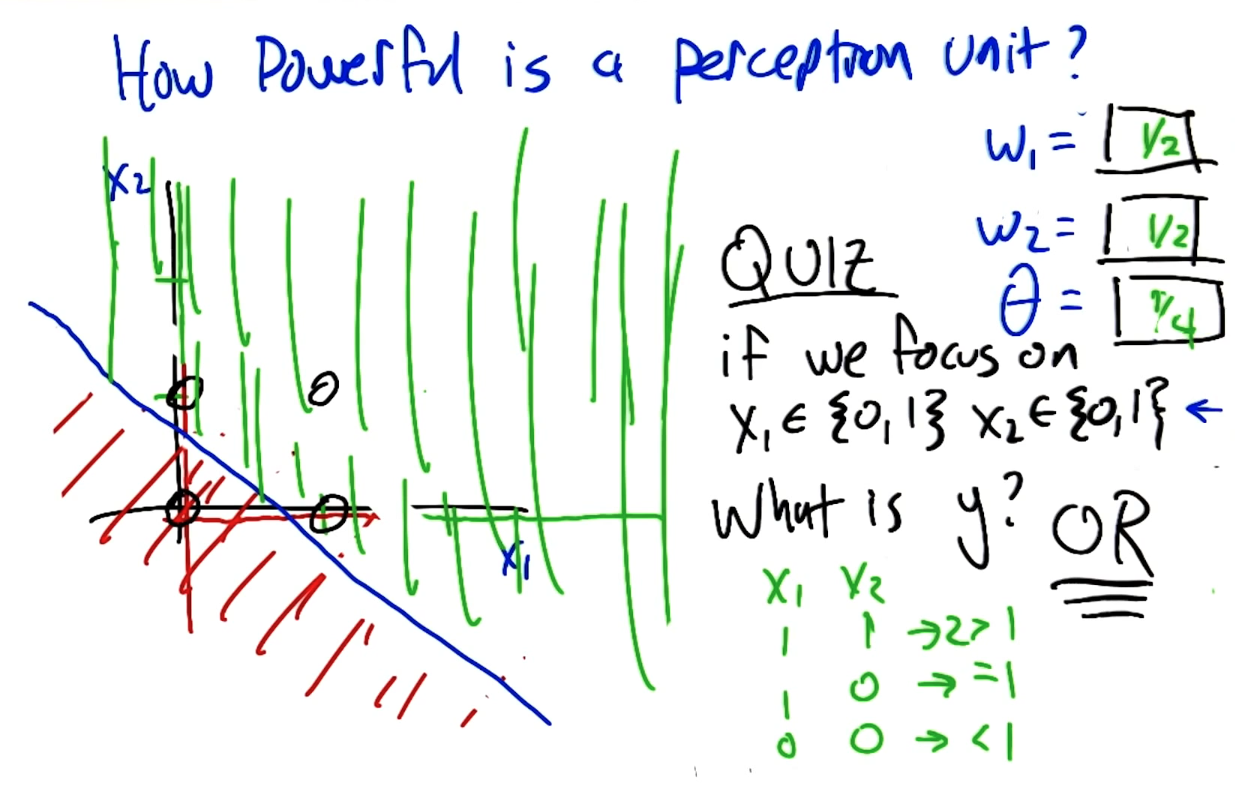
Boolean: Not
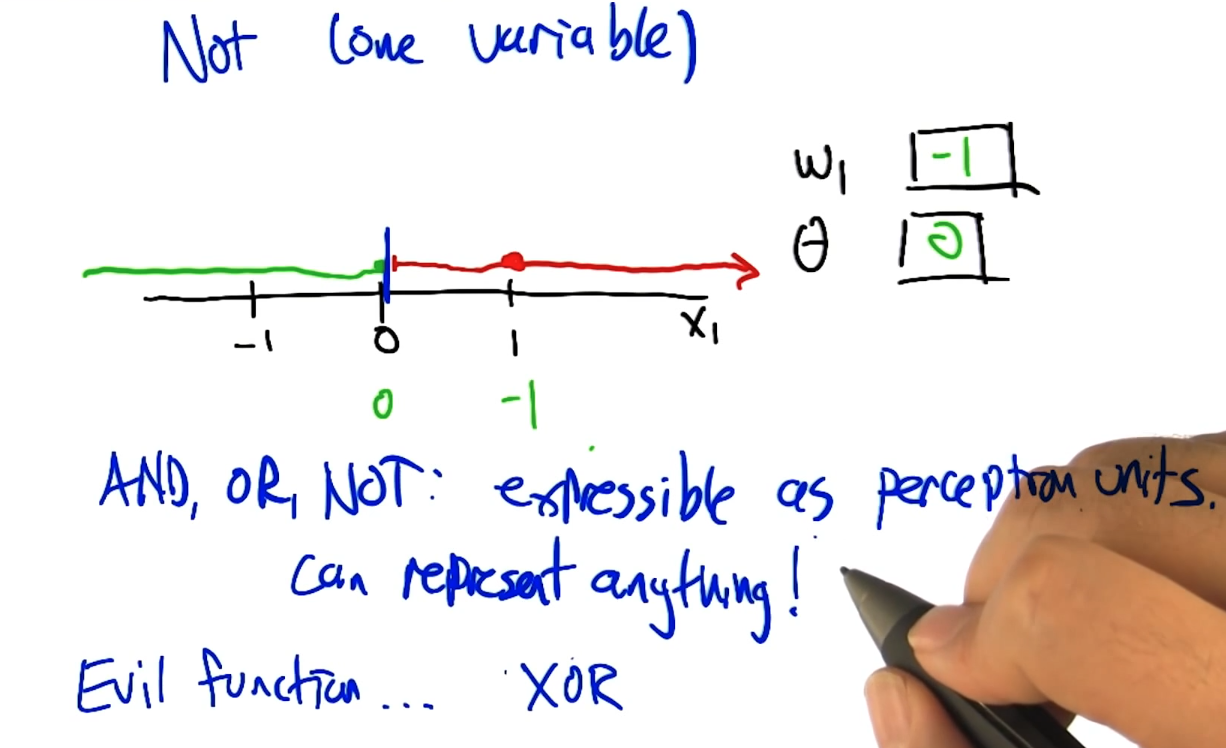
XOR as Perceptron Network
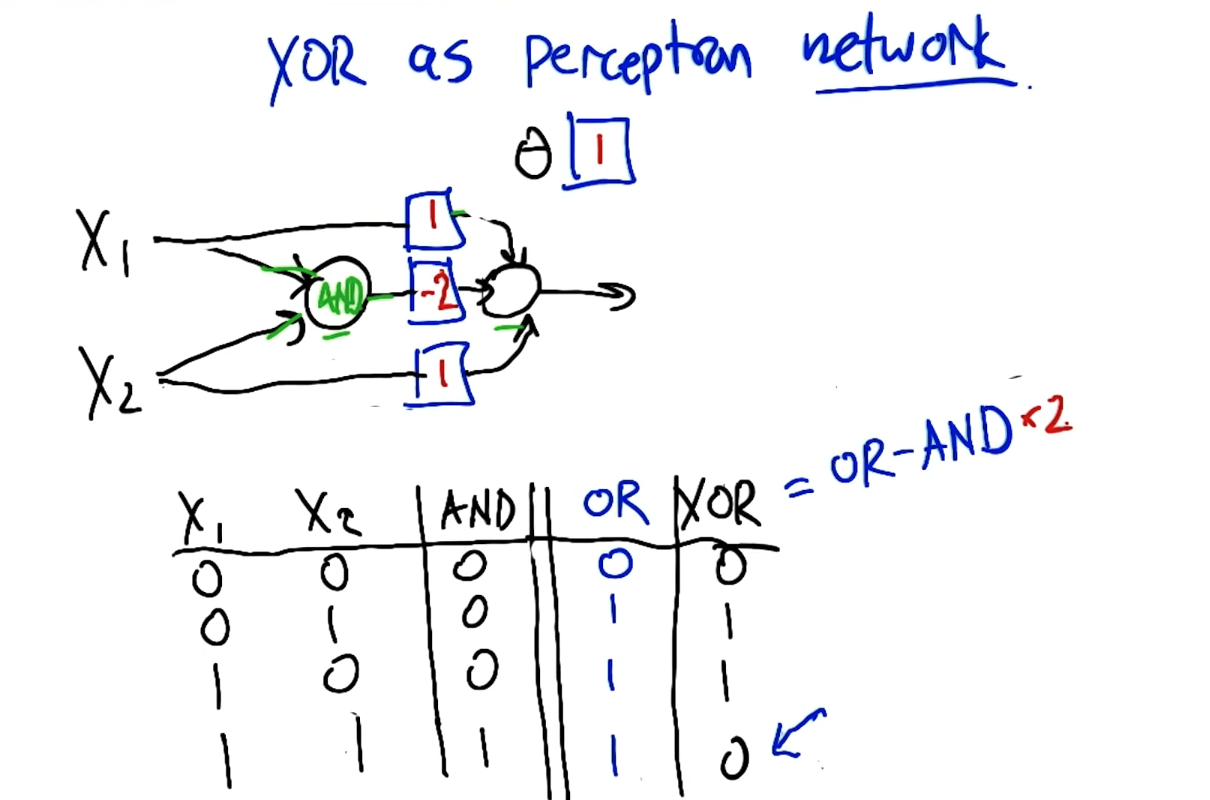
Perceptron Training
Given examples, find weights that map inputs to outputs.
- Perceptron rule (threshold)
- Gradient descent / delta rule (un-thresholded)
Perceptron rules
Single Unit
The halting problem for iterations.
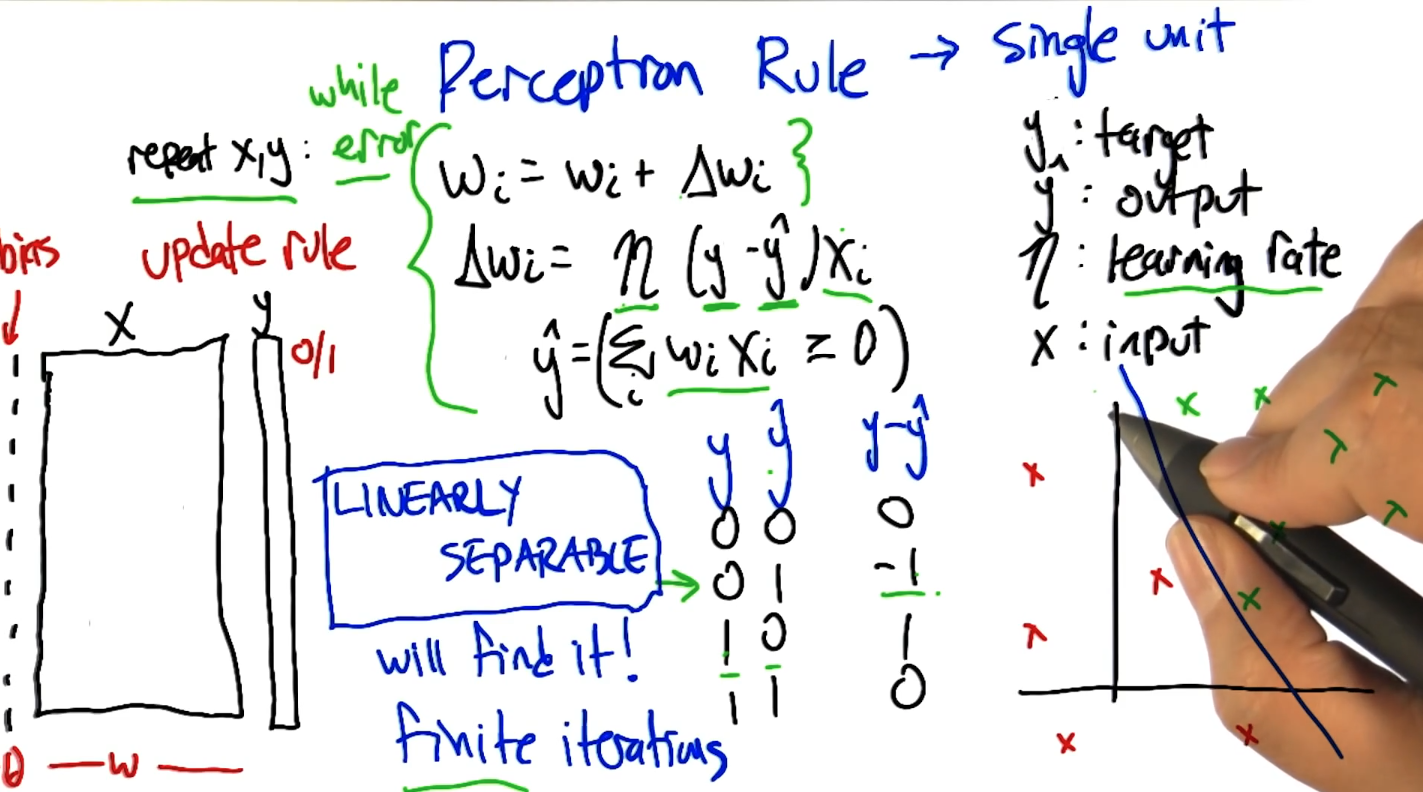
Gradient Descent
Avoid Non-linear separability issues.
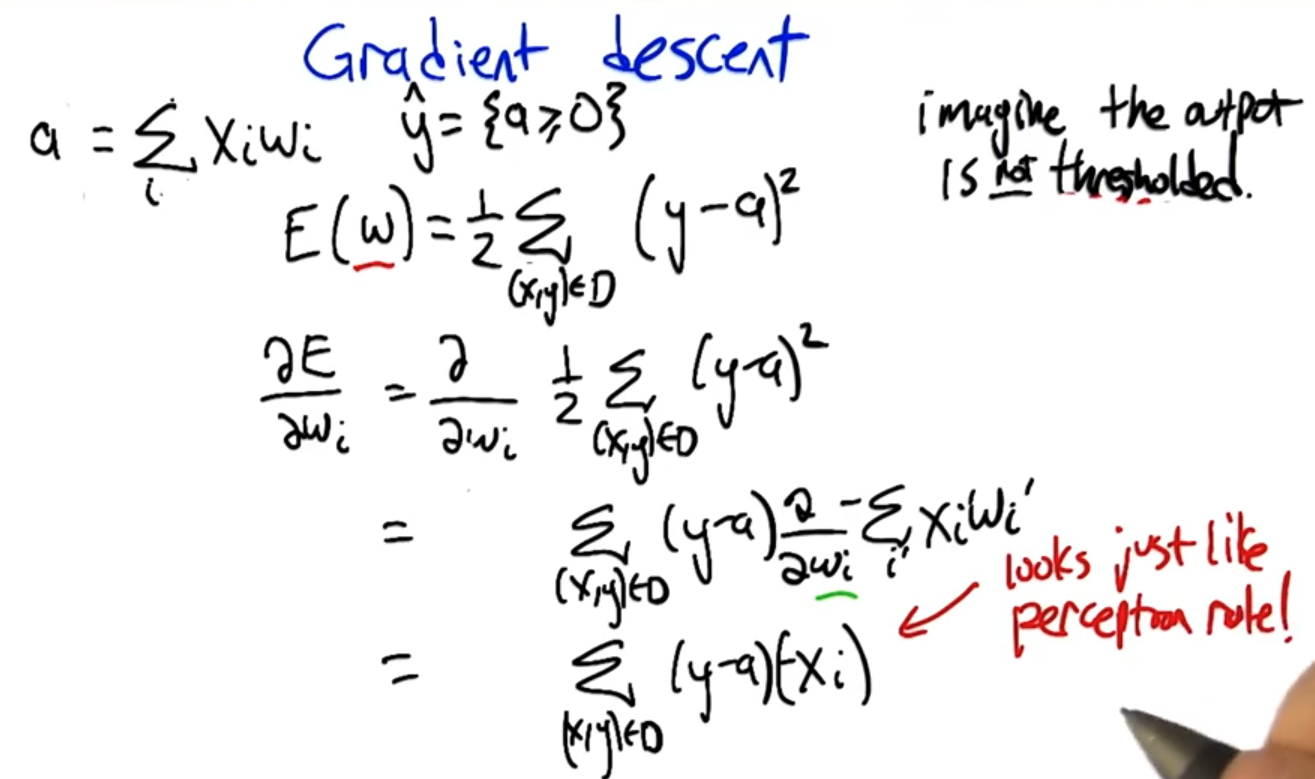
Comparison of Learning rules
Perceptron rule
guarantee to finite convergence only if linear separability
Eta = learning-rate
y = target
y' = output
Gradient Descent rule
Calculus, robust, converge to local optimum
Comparing rules
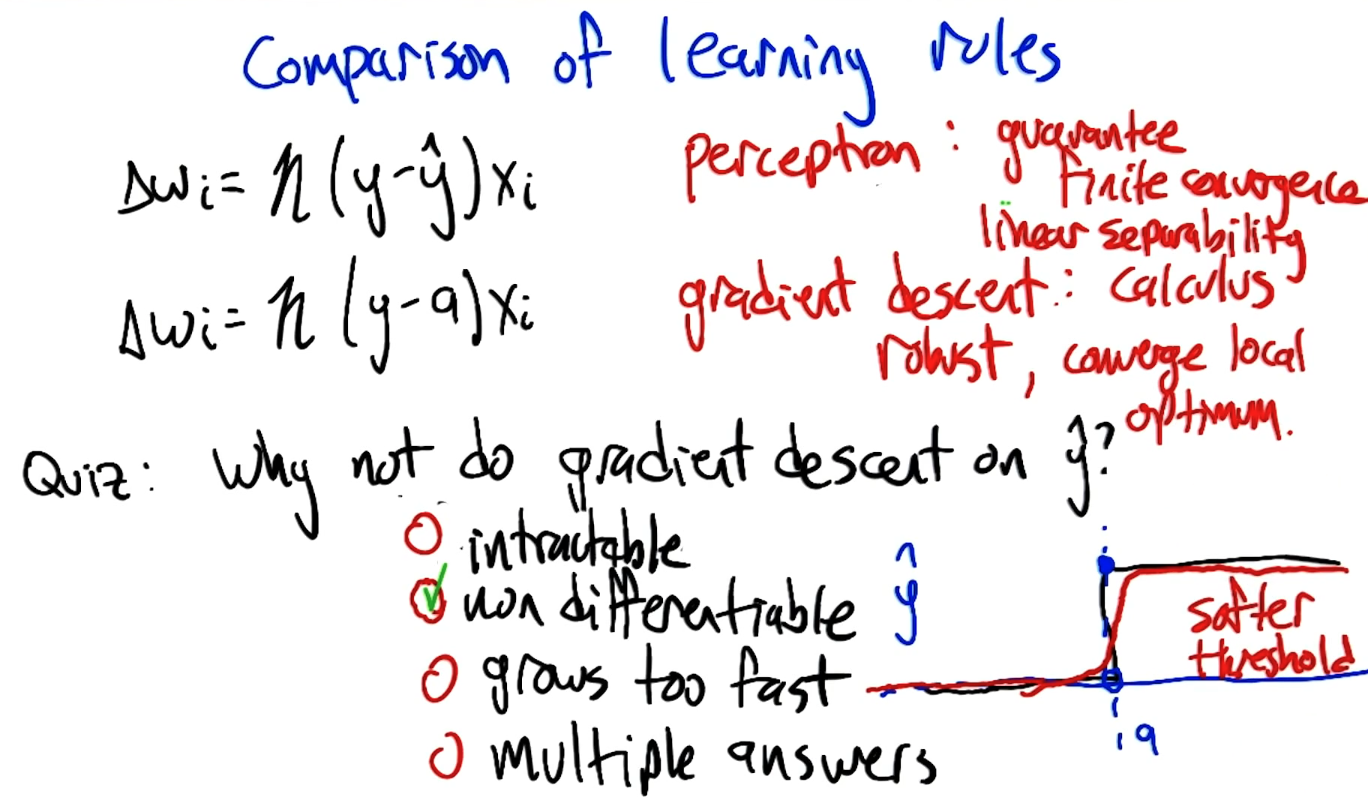
Sigmoid - differentiable threshold
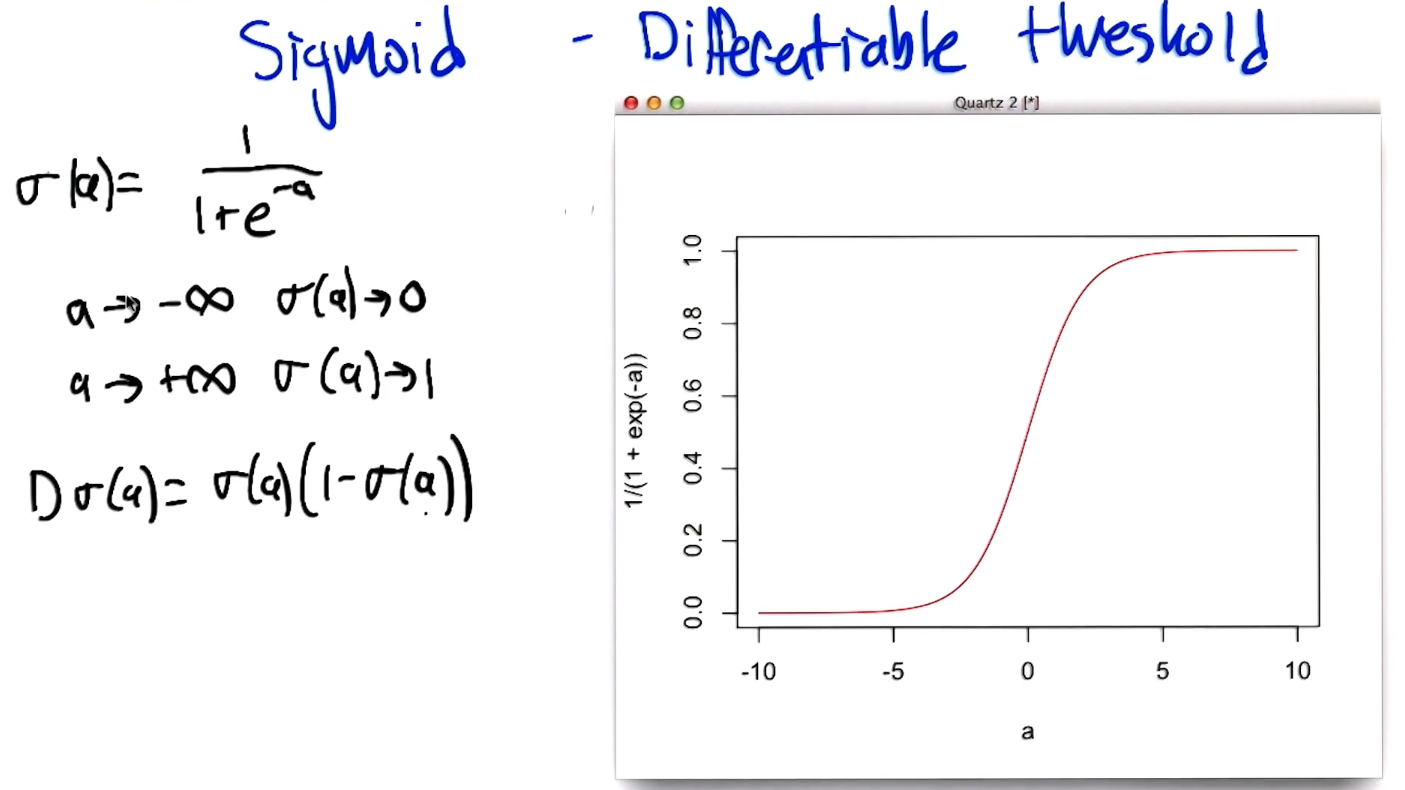
Neural Network Sketch
Whole thing is differentiable!
Back-propagation -> computationally beneficial organization of the chain rule.
The errors flowing backwards, sometimes it's even called error back propagation.
Many local optimal!!!
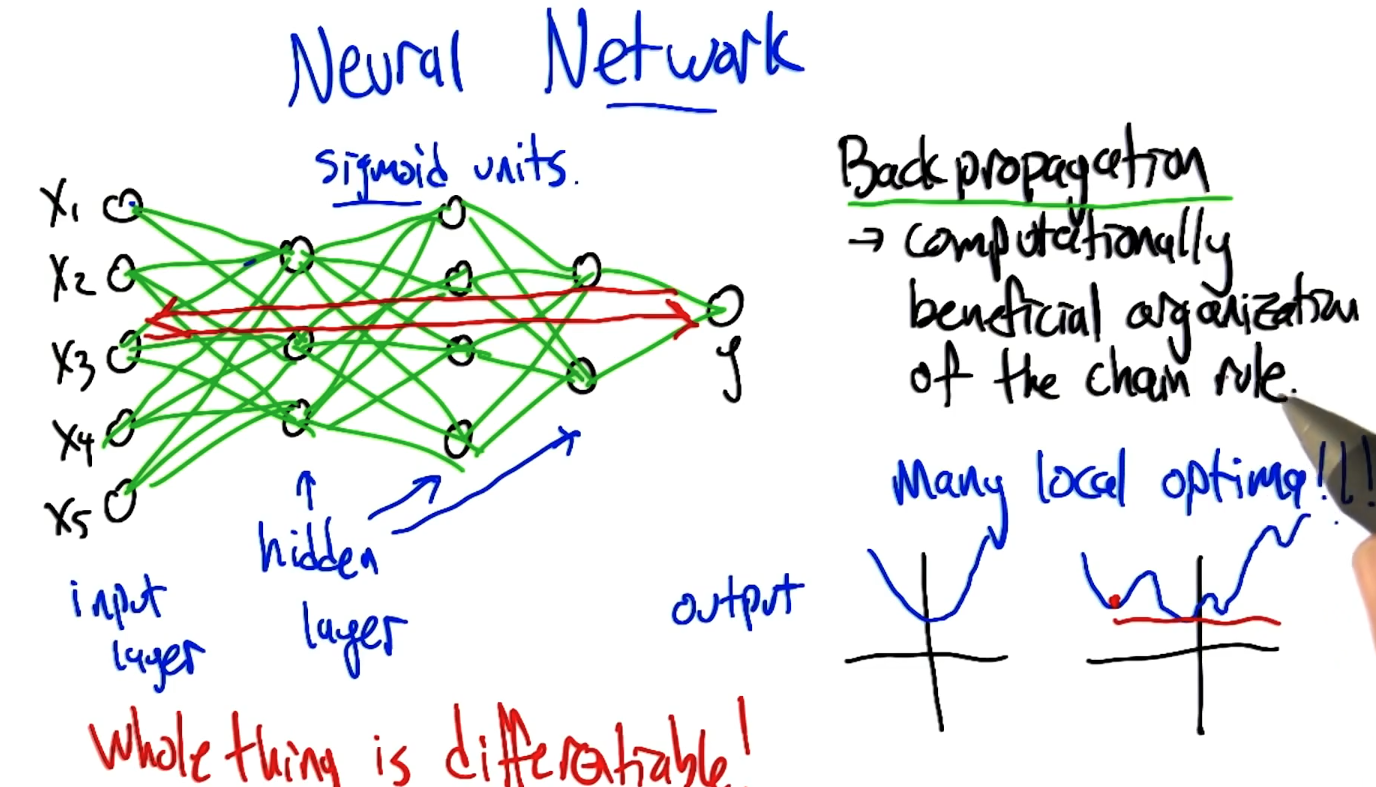
Optimizing weights
- Gradient descent
- Advanced methods
- Momentary
- Higher order derivatives
- Randomized optimization
- Penalty for "complexity"
Optimization:: learning
- More nodes
- More layers
- Large numbers
Restriction Bias
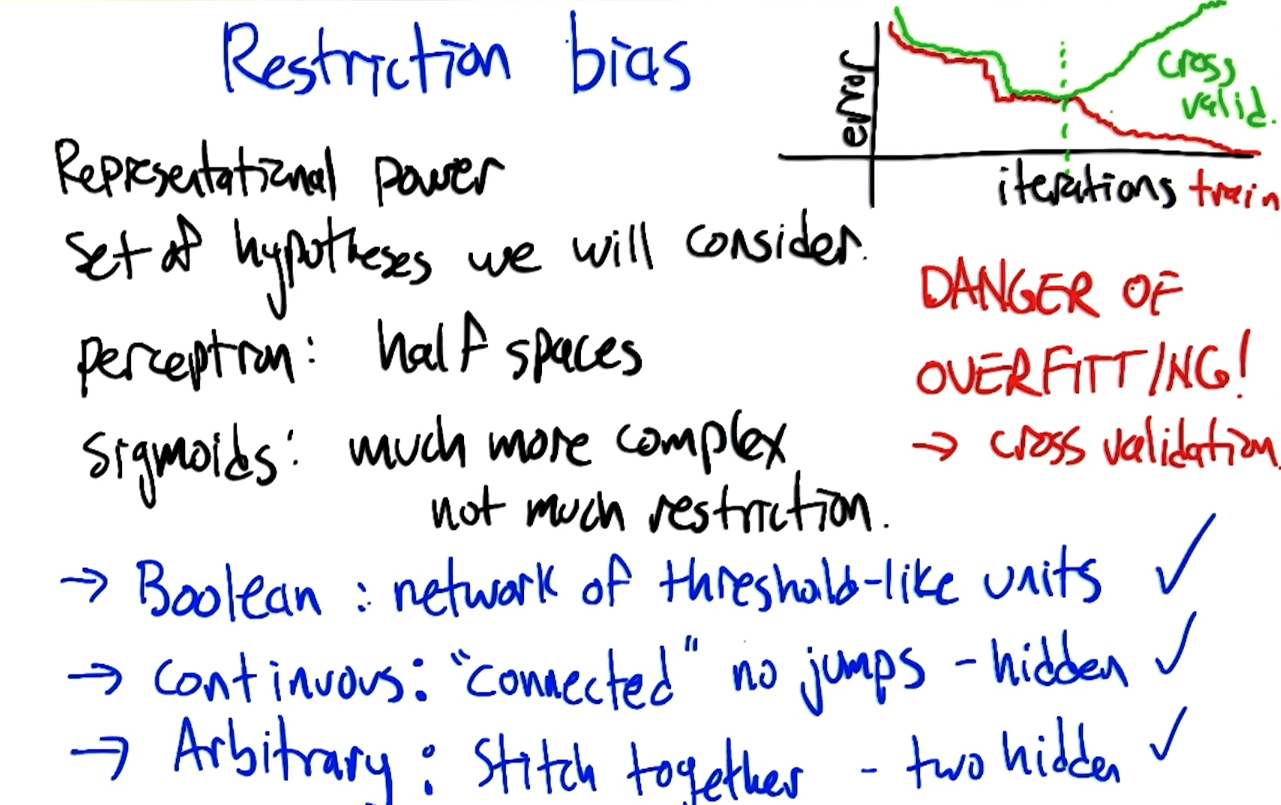
Peference Bias
Algorithm's selection of one representation over another.
What algorithm?
Gradient descent. We need to check initial weights. Normally, we pick up small random values. Local minimal variability
Low "complexity", simpler explanations.
Occam's razor
Entities should not be multiplied unnecessarily.
Summary
- Perceptrons - threshold unit
- Networks can produce any boolean functions.
- Perception rule - finite time for linearly separable
- General differentiable rule - back propagation & gradient descent
- Preference & restriction bias of neural networks.